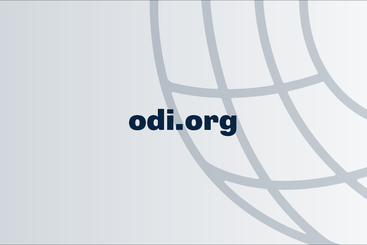Welcome to the June issue of our China and Global Development round-up. This month, I am focusing on the Belt and Road Initiative, Chinese infrastructure, and Africa-China relations.
Here are some resources I recommend:
Read no. 1: Reflecting on ten years of the Belt and Road Initiative (BRI)
As the BRI celebrates its 10th anniversary, we will certainly see many articles and events proving a long-term perspective on the initiative. This insightful piece by Keren Zhu explores how the Initiative has evolved, and the contradictions that shape it, forged by tensions between Chinese domestic and foreign policy goals, international development and national interests, as well as short- and long-term trade-offs. For the author, the BRI will continue to be shaped by these dynamics – the domestic trends in China, the needs of host countries and the global geopolitical tension will all contribute to determining how the BRI looks in the future.
Read no. 2: Who calls the shots on Chinese infrastructure projects?
An article by Gediminas Lesutis and Zhengli Huang, published in The Conversation, asks whether Chinese actors determine how mega-infrastructures are realised in African countries. Using the case of the Standard Gauge Railway in Kenya, the authors argue that the decisions of Chinese state-owned enterprises in Kenya do not necessarily present a grand Chinese strategy, but instead, the result of changing political and economic circumstances in China and reflect both state and Chinese private sector interests. They conclude that African governments have more power to influence their industrial development and the sustainability of large-scale projects than what is usually acknowledged by prevailing narratives.
Read no. 3: China’s strategy towards the Global South
I have recently started reading the newsletter Sinification by Thomas des Garets Geddes, which does a great job of translating Chinese views on domestic and foreign affairs. A recent post on China and the Global South translates a speech by Yang Ping of the Beijing Cultural Review. In a nutshell, Yang Pin suggests that China is being pushed out of the US-led international system, and it should therefore look to construct a new one, supported by other developing countries. It also argues that in doing so, China could use the BRI strategically, implying that the current drivers are more economic than political. It is always eye-opening to read how Chinese scholars comment on domestic policy, as the perspective is usually at odds with that adopted in Europe and in North America, where, for example, it is almost taken for granted that the BRI is driven by political factors.
Read no. 4: China’s non-interference policy
Mamoudou Gazibo and Abdou Rahim Lema write about China’s non-interference policy in Africa. This is particularly important in light of China’s Global Security Initiative, and the recent release of a related concept paper. The authors argue that non-interference still is, and will likely remain, the guiding principle of China’s security engagement with Africa. However, ‘non-interference’ is different from ‘non-intervention’. The former has clear imperialistic and hegemonic connotations, which China wants to stay clear of. Intervention, on the other hand, can take place with the consent of the African nations involved. This is a crucial distinction that has allowed China to present itself to African and other developing countries as an alternative to traditional powers.
Read no. 5: Channelling China’s Special Drawing Rights to Africa
At the Forum on China-Africa Cooperation held in 2021 in Dakar, President Xi Jinping said that “China is ready to channel to African countries 10 billion US dollars from its share of the IMF’s new allocation of Special Drawing Rights”. A new report by Development Reimagined and the Finance for Development Lab explores options to do that. Considering and scoring various options, the report suggests that Chinese SDR could be reallocated through the African Development Bank or the Liquidity and Sustainability Facility, a Eurobond repurchasing facility operated by the United Nations Economic Commission for Africa (UNECA).
Listen no. 6: ODI Think Change podcast on Africa-China
ODI’s Think Change podcast asks where the Africa-China relationship is heading. Hosted by ODI’s CEO Sara Pantuliano, this episode features Tin Hinane el Kadi, Yuezhou Yang and Anzetse Were, as well as yours truly. It explores how African countries are shaping their relationship with China beyond big infrastructure projects and the role the Chinese private sector is playing in fuelling investment and growth on the African continent. I think it’s well worth a listen, and while you are there, you can also check out the other episodes!
I hope you find these resources informative and helpful. Please contact me if you would like to sign up to receive this China and Global Development resource round-up regularly.



